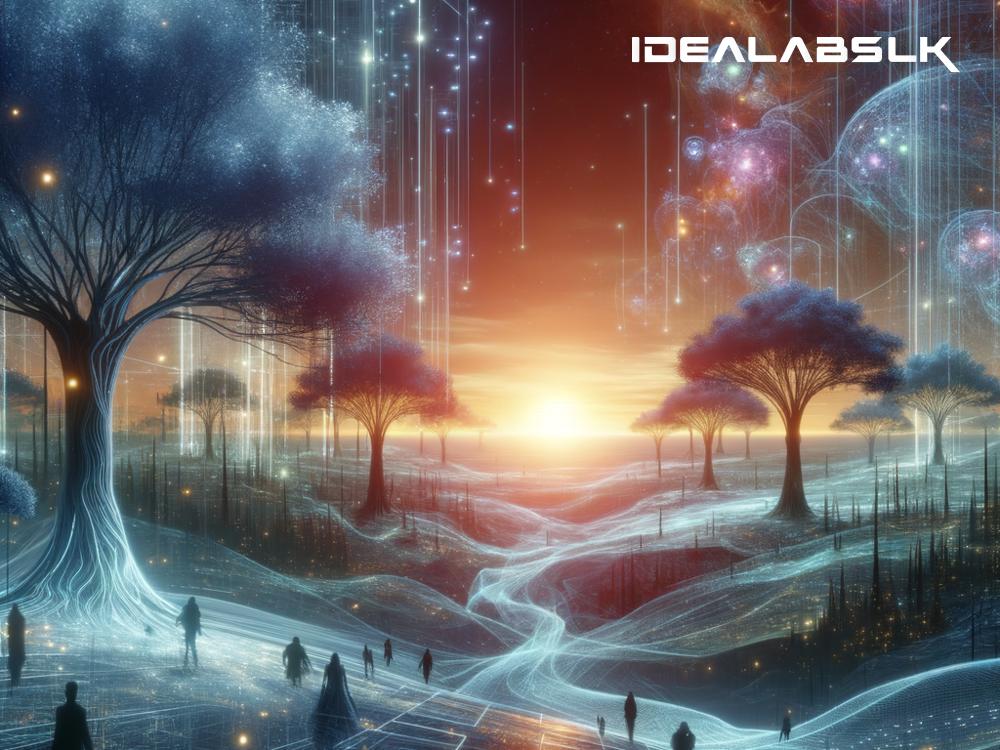In the enchanting realm of video games, a revolution unlike any other is unfolding, painting the future of gaming with strokes of boundless imagination and technological ingenuity. Welcome to the awe-inspiring era of AI-generated worlds in 2025, where games are crafting never-before-seen environments, delivering experiences that were once deemed impossible.
For decades, the creation of video game worlds was a labor-intensive process, with artists and designers pouring months, sometimes even years, into bringing to life landscapes, cities, and universes that gamers could explore. However, as we step into 2025, the landscape of game development is undergoing an unprecedented transformation, thanks to the marvels of Artificial Intelligence (AI).
The Magic of AI-Generated Worlds
Imagine plunging into a game where every mountain, river, forest, and city is unique - not just to you but different every time someone plays the game. These are not pre-designed by human hands but conjured up on the fly by sophisticated AI algorithms. This is the magic of AI-generated worlds - they offer an infinite playground of possibilities, ensuring that no two gamers' experiences are the same.
In these AI-crafted environments, the landscape can evolve based on your actions in the game. Rescue a village from bandits, and watch it flourish into a bustling city over time. Ignore the dark clouds gathering over a forest, and you might find it transformed into a desolate wasteland by a storm. This dynamic quality makes the game worlds feel alive, responsive to the player's decisions in profound ways.
How It Works: The Tech Behind the Magic
At the core of this revolution is a branch of AI known as procedural generation, enhanced by machine learning techniques. In simple terms, procedural generation is a method that uses algorithms to create data algorithmically rather than manually. When applied to game environments, it means that AI can generate terrain, structures, ecosystems, and even storylines, all on its own.
Machine learning, a subset of AI, allows the system to learn from previous outputs and user interactions, improving and refining the generated world over time. For instance, if players show a preference for exploring ancient ruins over modern cities, the AI might start generating worlds with a higher concentration of mystical, lost civilizations.
The Boundless Benefits
The advent of AI-generated worlds is not just about dazzling gamers with ever-changing landscapes; it offers numerous benefits to both developers and players:
- Infinite Replayability: Every playthrough offers a new world to explore, ensuring that the game remains fresh and engaging, potentially for years.
- Reduced Development Time and Costs: With AI handling the heavy lifting of world creation, developers can focus on storytelling, mechanics, and polish, reducing the time and cost associated with game development.
- Increased Accessibility: Smaller indie developers, without the resources of big studios, can now dream bigger, creating expansive, dynamic worlds that were previously beyond their reach.
- Personalized Gaming Experiences: AI can tailor the game world to match the player's preferences, difficulty levels, and play style, making each journey uniquely satisfying.
Challenges and Concerns
Despite its promise, the shift towards AI-generated worlds is not without its challenges. Concerns about the unpredictability of AI, ethical considerations around the use of such technology, and the fear of homogenization - where games begin to feel too similar due to shared underlying algorithms - are valid issues being addressed by developers and researchers alike.
Looking Ahead: A New Horizon for Gaming
As we navigate through 2025, AI-generated worlds are redefining the boundaries of creativity and engagement in the gaming industry. This evolution promises to deliver experiences that are as diverse and boundless as our imaginations, marking a new chapter in the story of interactive entertainment.
The journey ahead is rife with opportunities and challenges, as developers continue to fine-tune this technology. However, one thing is clear: AI-generated worlds are transforming the landscape of gaming, inviting us into an era where the only limit is the algorithm’s ability to dream.
In conclusion, as we embrace the wonders of AI-generated worlds, we stand on the cusp of a gaming revolution that is set to deliver unprecedented levels of immersion, personalization, and wonder. Welcome to the future of gaming—vast, vibrant, and ever-changing.

